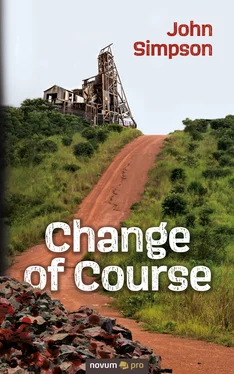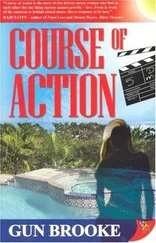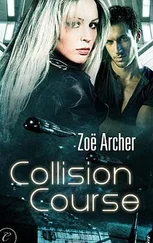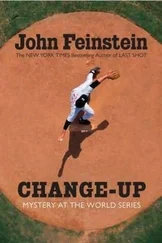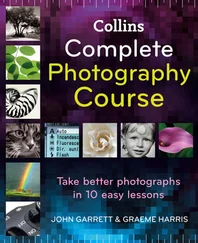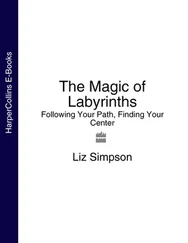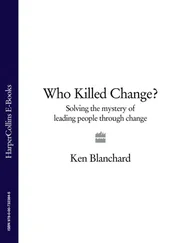‘Even though some of those, like Mozambique, are in the Commonwealth?’
‘There’s plenty to do in English-speaking places without complicating life with other languages and the baggage left behind by other colonial powers. Britain’s past actions are hard enough to clear up.’
‘That makes sense.’ She stared at me, lips curled back between her teeth, deep in thought. ‘Why did you change your career? You’re like some sort of poacher turned gamekeeper.’
I laughed. ‘Gamekeeper turned poacher, more like.’
Sophie looked baffled; her face demanded an explanation.
‘It’s simple really,’ I said. ‘Most people regard artisanal miners as the bad boys: working illegally and screwing up the environment.’
‘Mercury?’
‘Not to mention messing up riverbanks and destroying vegetation. Then there’s child labour.’
‘Bloody hell. If they’re that bad, why do you support them? How can you justify it?’
‘That’s a big question, Sophie. Remember it’s for subsistence; they only do it to survive. If they didn’t mine, they’d either have to find some other way to get food or move on. The system, and the mining laws and the bureaucratic infrastructure, is rigged against them in favour of the mining companies. These people live where they have for generations, and they survive by whatever means they can, and as no one owned the land officially. They believe they can do what they want with it. Problems arise when one of them finds something valuable like gold, silver or precious stones and trades it to get money for food. It draws attention. Mining companies get wind of it and they snap up the mining rights, instantly making it illegal for the artisanal miners to mine their traditional land, as they are then on a mining company claim! They often can’t even farm it, let alone mine it, after that.’
Sophie looked at me thoughtfully – she’d obviously never considered this before. While I had her captive, I continued on the subject close to my heart.
‘Many of the world’s biggest mines weren’t found by geologists, like your father, but by the local people who happened upon something while working in their fields or fetching water from the river.’
‘So why don’t the … artisanal miners you called them, just apply for the mining rights themselves; it would solve the problem surely?’
‘Ah yes, but they have had no formal education and wouldn’t know where to start with the bureaucracy! Many aren’t even aware of the existence of mining rights – until it’s too late – and the process for getting the rights requires you to go to a big city, typically the capital, which might be several days’ walk away. Most simply can’t afford the time or the legal costs. Mining rights are expensive. Artisanal miners stand no chance without some help.’
‘So, do they just stop, or carry on somehow?’
‘Well, it’s a dangerous game. The mining companies often deploy armed forces to clear illegals off their property so there’s a very high risk they’ll get shot or injured in some other way. They can’t even sell what they produce very easily. They’re forced to use middlemen who rip them off. They’re lucky if they get five dollars for a gram of gold. The middlemen will get upwards of twenty dollars for doing bugger all. The upshot is that artisanal miners have to produce a lot more gold to make a living than if they were legal. It means they have to cut corners and use whatever labour is available to them, and that means women and children.’
Sophie looked at me long and hard. ‘I can understand all that but … You used to work for a mining company. You must have bought into what they stood for, including getting rid of artisanal miners. Something must have happened. You’ve changed sides and nobody changes sides without a good reason. What was yours?’
‘I’ve never really thought about it,’ I lied. ‘I just sort of drifted into it.’
‘For something you “just sort of drifted into” you’re very passionate about it. Something must have stirred you up …?’ She was very intuitive; it was unnerving and rather too close to the bone.
She must have noticed that I kept glancing at my notebook because she asked if she could take a look. After some hesitation, I passed it to her. There was no way she’d be able to make any sense of my notes. Triggers are useless if there’s nothing to set them off.
As she thumbed through, her expression turned from excitement to frustration. ‘You can’t be serious,’ she said. ‘This doesn’t say anything.’
‘I’ve got loads like that – it works for me.’ I held out my hand; she gave an exasperated sigh and passed it back to me.
‘Let’s go back to you and my father,’ she said. ‘How well did you know him?’
‘We were friends, good friends. I’d known him for about eight or nine months, I think, by the time he died.’ I told her that I had arrived in Mumbulo in early 1984, having been transferred from South Africa by the company. James Lodge had already been there for three or four years by the time I turned up. Sophie was both surprised and disturbed when she learnt that Lodge and I had barely known one another in my first contract. At work, in the Mumbulo Mine offices, Lodge’s Geology department had no direct dealings with my department, Metallurgy; plus, I was the shy, new boy, not yet fully integrated into the established social groupings.
‘We shared a beer from time to time of course, but he was more comfortable with his usual cronies,’ I explained.
‘But you said you were good friends.’
‘Don’t look so worried. We became very good friends later on. I believe I knew him as well as anyone in Mumbulo did.’
Her face relaxed.
‘It took me a long while to get used to Angola. I didn’t adjust very well to begin with, and I found everything a struggle. Angola was completely different from here or South Africa: it was communist. There was a civil war going on and the poverty was in your face and far worse than anything I had ever seen in South Africa.’
‘It never occurred to me that my father had worked in a civil war zone. What motivates people to work in these places?’
‘I don’t know about your father but, for me, there were three things: getting out of South Africa, I hated the politics, the apartheid; adventure, I was a young man and I wanted to see and do things that most young lads of my age would have no experience of; and then there was the money … It paid well. I guess a lot of that was danger money … but we never saw or heard any serious gunfire.’
‘Serious? You mean there’s … I don’t know … casual gunfire?’ She chuckled.
‘Yes, sort of … The MPLA, that’s the government army, had a barracks in town. They would often fire their AK–47s down the middle of the road after dark and we’d enjoy the tracer show while we supped our beers on the veranda. The civil war passed us by, as did the war with South Africa.’
‘You couldn’t have known that you’d be safe though, could you?’ she asked.
‘No, but we were young. We used to joke about mortality; it was like some abstract theoretical concept back then. Anyway, after I left, the civil war did reach the mining area and UNITA, the rebels, did capture some of the mining towns. I heard they took Mumbulo – that’s where your father and I worked.’
Her slow head shake left me in little doubt that she thought we were mad. ‘You said the civil war passed you by, but there must have been some effects of it?’
‘Loads.’ I told her that almost all supplies had had to be flown in; very little had come in by road. Angola’s roads had been heavily land mined and any convoys that there were had to have a military escort. They were always getting ambushed or would run over land mines. Every item was ranked in priority and only absolute necessities ever made it in. Even diesel had been flown in. Mining equipment, food and booze had been top of the list so spares for cars, for example, had rarely made it. I told her how we had driven around in death traps, that my Land Rover had had no brakes, rubbish lights, and the tyres had been worn down to the canvas. ‘It was all part of the fun of it,’ I said.
Читать дальше
